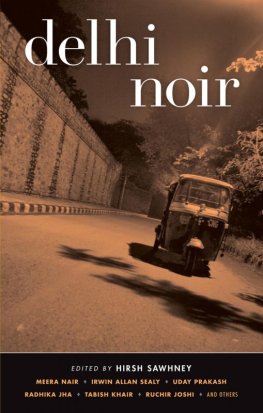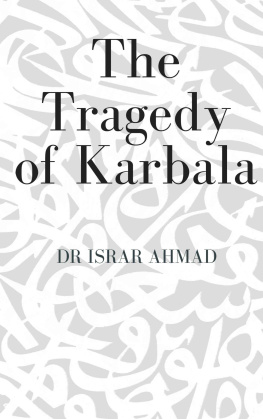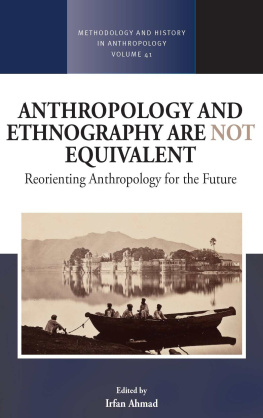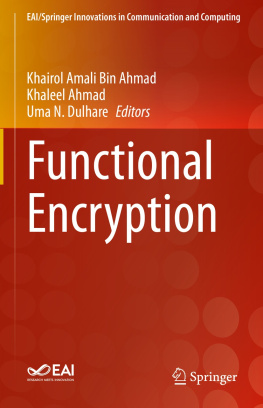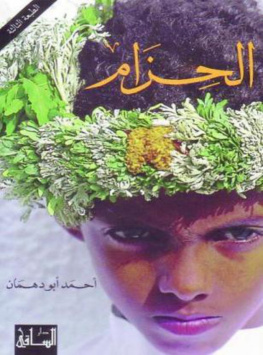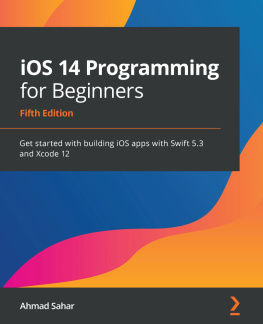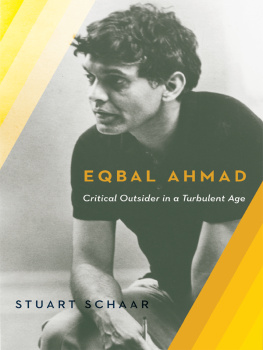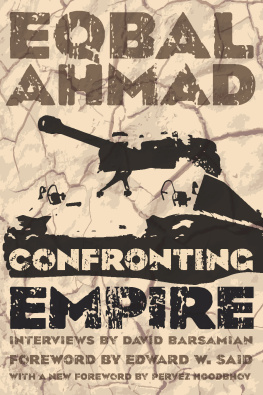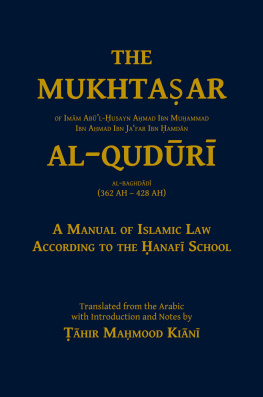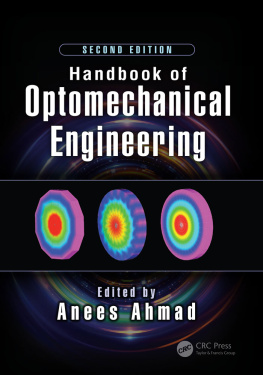Eqbal Ahmad - Terrorism: Theirs and Ours
Here you can read online Eqbal Ahmad - Terrorism: Theirs and Ours full text of the book (entire story) in english for free. Download pdf and epub, get meaning, cover and reviews about this ebook. year: 2001, genre: Science / Politics. Description of the work, (preface) as well as reviews are available. Best literature library LitArk.com created for fans of good reading and offers a wide selection of genres:
Romance novel
Science fiction
Adventure
Detective
Science
History
Home and family
Prose
Art
Politics
Computer
Non-fiction
Religion
Business
Children
Humor
Choose a favorite category and find really read worthwhile books. Enjoy immersion in the world of imagination, feel the emotions of the characters or learn something new for yourself, make an fascinating discovery.

- Book:Terrorism: Theirs and Ours
- Author:
- Genre:
- Year:2001
- Rating:4 / 5
- Favourites:Add to favourites
- Your mark:
- 80
- 1
- 2
- 3
- 4
- 5
Terrorism: Theirs and Ours: summary, description and annotation
We offer to read an annotation, description, summary or preface (depends on what the author of the book "Terrorism: Theirs and Ours" wrote himself). If you haven't found the necessary information about the book — write in the comments, we will try to find it.
Terrorism: Theirs and Ours — read online for free the complete book (whole text) full work
Below is the text of the book, divided by pages. System saving the place of the last page read, allows you to conveniently read the book "Terrorism: Theirs and Ours" online for free, without having to search again every time where you left off. Put a bookmark, and you can go to the page where you finished reading at any time.
Font size:
Interval:
Bookmark:
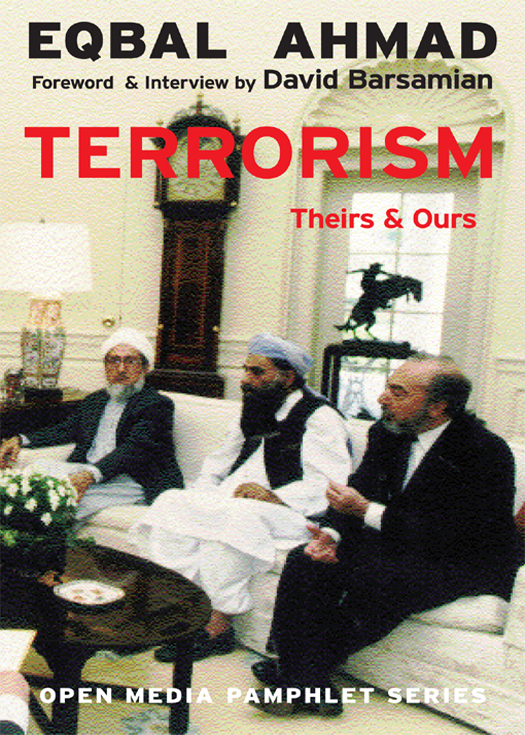
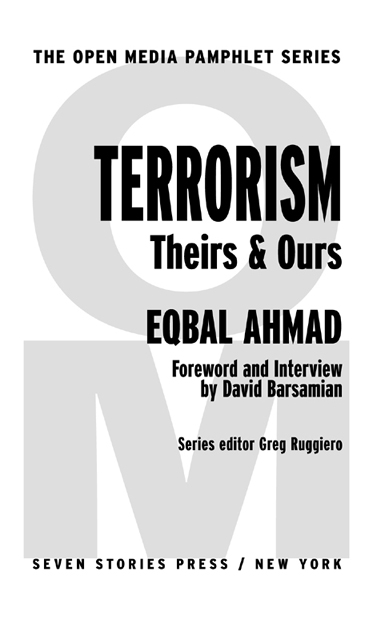
Copyright 2001 by David Barsamian
A Seven Stories Press First Edition, published in association with Open Media.
Open Media Pamphlet Series editor, Greg Ruggiero.
All rights reserved. No part of this book may be reproduced, stored in a retrieval system, or transmitted in any form, by any means, including mechanical, electric, photocopying, recording or otherwise, without the prior written permission of the publisher.
eISBN: 978-1-60980-313-1
Cover design by Greg Ruggiero.
Cover photo: Members of the Afghan mujahideen meet with Ronald Reagan and advisors at the White House, June 16, 1986. Courtesy of Ronald Reagan Library.
v3.1
The first section of this book, Terrorism, Theirs & Ours, is an edited transcript of a public talk Eqbal Ahmad delivered on October 12, 1998 at the University of Colorado, Boulder. The second section of this book is an edited excerpt from Eqbal Ahmad: Confronting Empire, Interviews with David Barsamian (South End Press, 2000). Special thanks to the South End Press Collective for their solidarity, encouragement, and support.
by David Barsamian
Eqbal Ahmad was one of the major activist scholars of this era. He was born in India probably in 1934. He was never quite sure. He left with his brothers for the newly created state of Pakistan in 1947. In 1996, the BBC did a powerful and moving TV documentary chronicling Ahmads trek in a refugee caravan from his village in Bihar to Pakistan. The film, not shown on PBS in the U.S., is remarkable not just as an historical document but also for providing insight into the dangers of sectarian nationalism. Ahmads secular thinking was surely shaped by the wrenching communal and political violence he experienced as a youngster. Even before the subcontinent was engulfed in the homicidal convulsions of 1947, Ahmad witnessed his own father murdered before him.
Ahmad came to the United States in the 1950s to study at Princeton. Later he went to Algeria. It was there that his ideas about national liberation and anti-imperialism crystallized. He worked with Frantz Fanon, author of The Wretched of the Earth, during the revolt against the French. Returning to the U.S., he became active in the civil rights and antiVietnam War movements. It was during his involvement in the latter that I first heard his name. He was accused of plotting to kidnap Henry Kissinger. The trumped-up charges were dismissed.
I did my first interview with him in the early 1980s in his apartment on New Yorks Upper West Side. It was memorable. I had just gotten a new tape recorder. I returned home thinking, Wow, Ive got a great interview. I hit play and discovered the tape was blank. I had failed to turn the machine on. With considerable embarrassment I explained to him what happened. He said, No problem. He invited me over the next day and we did another interview. This time, I pressed the right buttons. Whenever I tell that story, his friends would nod and say, Thats Eqbal.
Ahmads radical politics and outspoken positions made him a pariah in academic circles. After years of being an intellectual migrant worker, Hampshire College in Amherst, Massachusetts, hired him in the early 1980s as a professor. He taught there until his retirement in 1997. He spent most of his final years in Islamabad where he wrote a weekly column for Dawn, Pakistans oldest English-language newspaper. His political work consisted chiefly of trying to bridge differences with India on the issues of Kashmir and nuclear weapons. He was also speaking out against the rise of Islamic fundamentalism and was concerned about the possible Talibanization of Pakistan.
Eqbal Ahmad died in Islamabad, Pakistan, on May 11, 1999. His close friend Edward Said wrote, He was perhaps the shrewdest and most original ant-imperialist analyst of the postwar world, particularly of the dynamics between the West and postcolonial Asia and Africa; a man of enormous charisma, dazzling eloquence, incorruptible ideals, unfailing generosity and sympathy. Whether on the conflict between Israelis and Palestinians or India and Pakistan, he was a force for a just struggle but also for a just reconciliation. Humanity and genuine secularism had no finer champion.
Terrorism: Theirs & Ours was one of Eqbal Ahmads last public talks in the United States. He spoke at the University of Colorado at Boulder in October 1998. It was broadcast nationally and internationally on my weekly Alternative Radio program. Eqbal Ahmads near prophetic sense is stunning. After the September 11 terrorist attacks, I aired the speech again. Listeners called in great numbers requesting copies. They almost all believed that the talk had just been recorded.
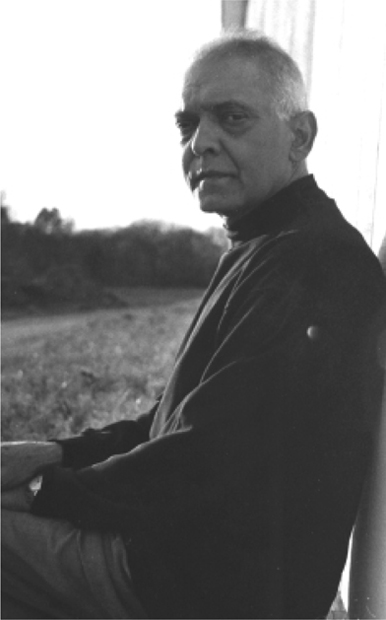
by Eqbal Ahmad
Until the 1930s and early 1940s, the Jewish underground in Palestine was described as terrorist. Then something happened: around 1942, as news of the Holocaust was spreading, a certain liberal sympathy with the Jewish people began to emerge in the Western world. By 1944, the terrorists of Palestine, who were Zionists, suddenly began being described as freedom fighters. If you look in history books you can find at least two Israeli prime ministers, including Menachem Begin, appearing in Wanted posters saying, TERRORISTS, REWARD [THIS MUCH]. The highest reward I have seen offered was 100,000 British pounds for the head of Menachem Begin, the terrorist.
From 1969 to 1990, the Palestine Liberation Organization (PLO) occupied center stage as a terrorist organization. Yasir Arafat has been repeatedly described as the chief of terrorism by the great sage of American journalism, William Safire of The New York Times. On September 29, 1998, I was rather amused to notice a picture of Yasir Arafat and Israeli prime minister Benjamin Netanyahu standing on either side of President Bill Clinton. Clinton was looking toward Arafat, who looked meek as a mouse. Just a few years earlier, Arafat would appear in photos with a very menacing look, a gun holstered to his belt. Thats Yasir Arafat. You remember those pictures, and youll remember the next one.
In 1985, President Ronald Reagan received a group of ferocious-looking, turban-wearing men who looked like they came from another century. I had been writing about the very same men for The New Yorker. After receiving them in the White House, Reagan spoke to the press, referring to his foreign guests as freedom fighters. These were the Afghan mujahideen. They were at the time, guns in hand, battling the Evil Empire. For Reagan, they were the moral equivalent of our Founding Fathers.
In August 1998, another American President ordered missile strikes to kill Osama bin Laden and his men in Afghanistan-based camps. Mr. bin Laden, at whom fifteen American missiles were fired to hit in Afghanistan, was only a few years earlier the moral equivalent of George Washington and Thomas Jefferson. Ill return to the subject of bin Laden later.
I am recalling these stories to point out that the official approach to terrorism is rather complicated, but not without characteristics. To begin with, terrorists change. The terrorist of yesterday is the hero of today, and the hero of yesterday becomes the terrorist of today. In a constantly changing world of images, we have to keep our heads straight to know what terrorism is and what it is not. Even more importantly, we need to know what causes terrorism and how to stop it.
Font size:
Interval:
Bookmark:
Similar books «Terrorism: Theirs and Ours»
Look at similar books to Terrorism: Theirs and Ours. We have selected literature similar in name and meaning in the hope of providing readers with more options to find new, interesting, not yet read works.
Discussion, reviews of the book Terrorism: Theirs and Ours and just readers' own opinions. Leave your comments, write what you think about the work, its meaning or the main characters. Specify what exactly you liked and what you didn't like, and why you think so.

